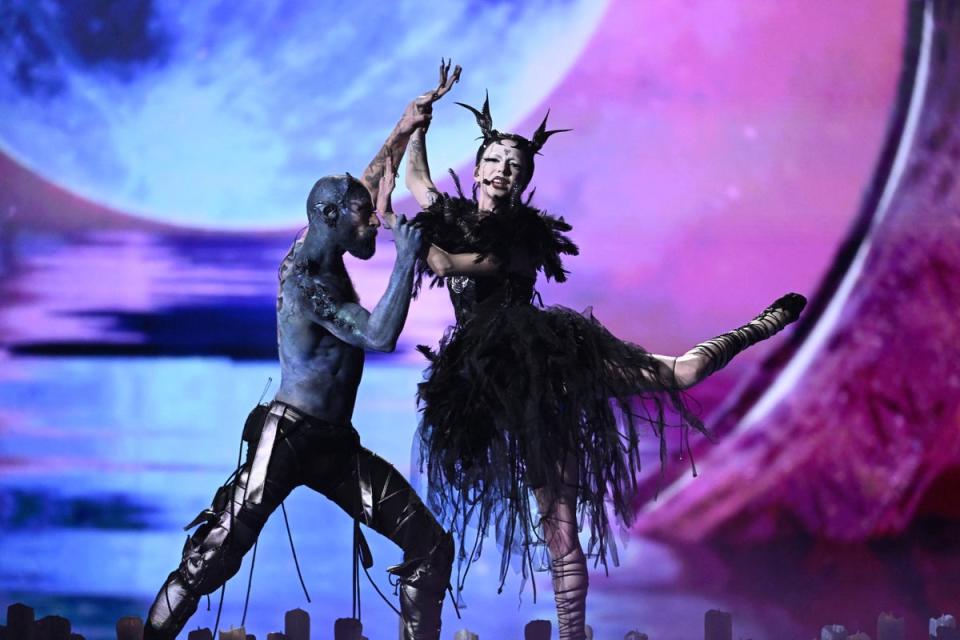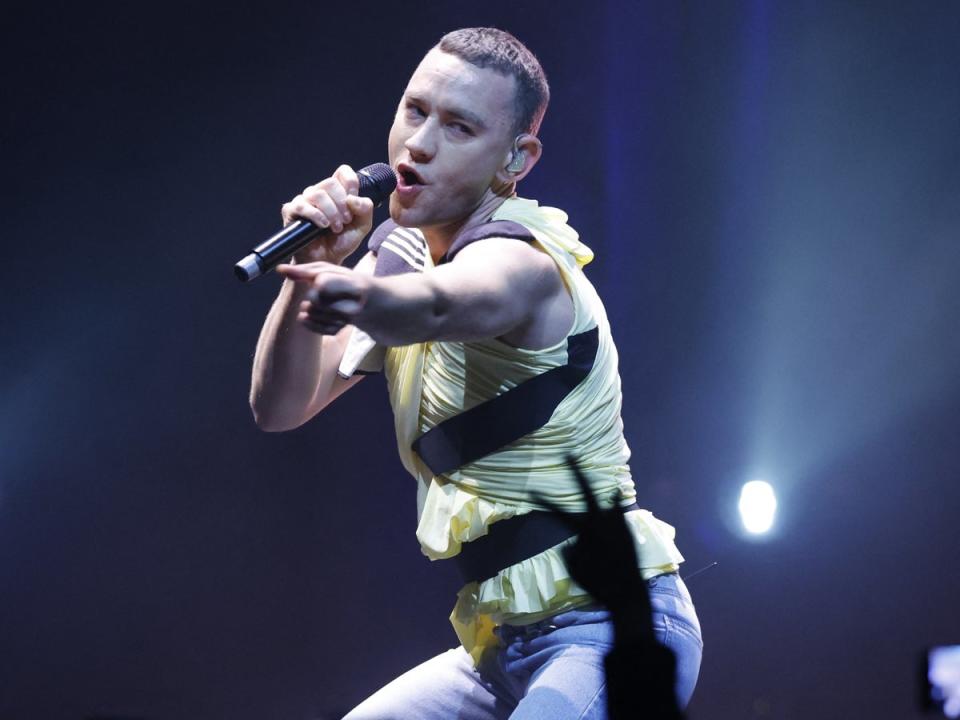Ireland’s Bambie Thug and Croatia’s Baby Lasagna through to Eurovision 2024 final
Ireland has secured a place in the 68th Eurovision Song Contest final for the first time since 2018, thanks to “goth gremlin goblin witch” Bambie Thug.
The Cork-born, London-based singer (real name Bambie Ray Robinson), 31, was voted through following their performance of “Doomsday Blue” at the semi-finals in Malmo, Sweden, on Tuesday (7 May)
Ryan O’Shaughnessy was previously the last contestant to reach the grand final for Ireland with “Together” in Lisbon, Portugal, in 2018, where he came 16th.
Bambie now has a chance to take Ireland to the win, which the country has not achieved since 1996 with Eimear Quinn’s “The Voice”.
During their first Eurovision performance, Bambie’s dancers performed their routine while wearing blue paint, highly exaggerated ears and fake teeth.
Towards the end of the song, Bambie also revealed the trans pride flag on their costume before pyrotechnics flared up around the stage.
Ireland’s Taoiseach Simon Harris hailed their achievement and said it was “time to bring the Eurovision back to Ireland”.
“Congratulations to Bambie Thug, who has qualified for the Eurovision final tonight,” he wrote on X/Twitter.

“Bambie will become the first Irish act in the Eurovision finals since 2018. It is time to bring the Eurovision back to Ireland and Bambie is the act to do it!”
Croatia’s Baby Lasagna, another Eurovision 2024 favourite, also made it through with his techno-rock song “Rim Tim Tagi Dim”, along with Finland’s Windows95Man.
Delegates from Luxembourg, Serbia, Ukraine, Portugal, Lithuania, Finland and Cyprus are also through to the final.
Elsewhere on the night, the UK’s entry, Years and Years singer Olly Alexander, delivered his first Eurovision performance, which featured upside-down locker room staging.

It is the first time the UK has performed in a semi-final. Alexander, 33 has a guaranteed spot in the grand final as the UK is one of the “big five” countries that make the biggest contributions to the Eurovision Song Contest.
The singer has come under intense pressure to boycott the competition in recent months due to Israel’s involvement, which many Eurovision fans have objected to due to the country’s ongoing war on Gaza.
Alexander said in a recent interview that, while he believes his goals are the same as Queers for Palestine, his participation or not in Eurovision “isn’t going to make a difference to those things, so that’s why I’m still doing it”.

Organisers behind the Eurovision Song Contest have consistently rejected calls to ban Israel from competing amid its war on Gaza.
Widespread protests are expected in Sweden on the night of the grand final, which is scheduled to take place on Saturday 11 May.
Hosting duties will be performed live from the Malmö Arena by Swedish-American actor Malin Åkerman and Eurovision veteran Petra Mede.
You’ll be able to follow all the latest news and updates via The Independent’s usual liveblog.
Additional reporting by agencies

 Yahoo News
Yahoo News 
